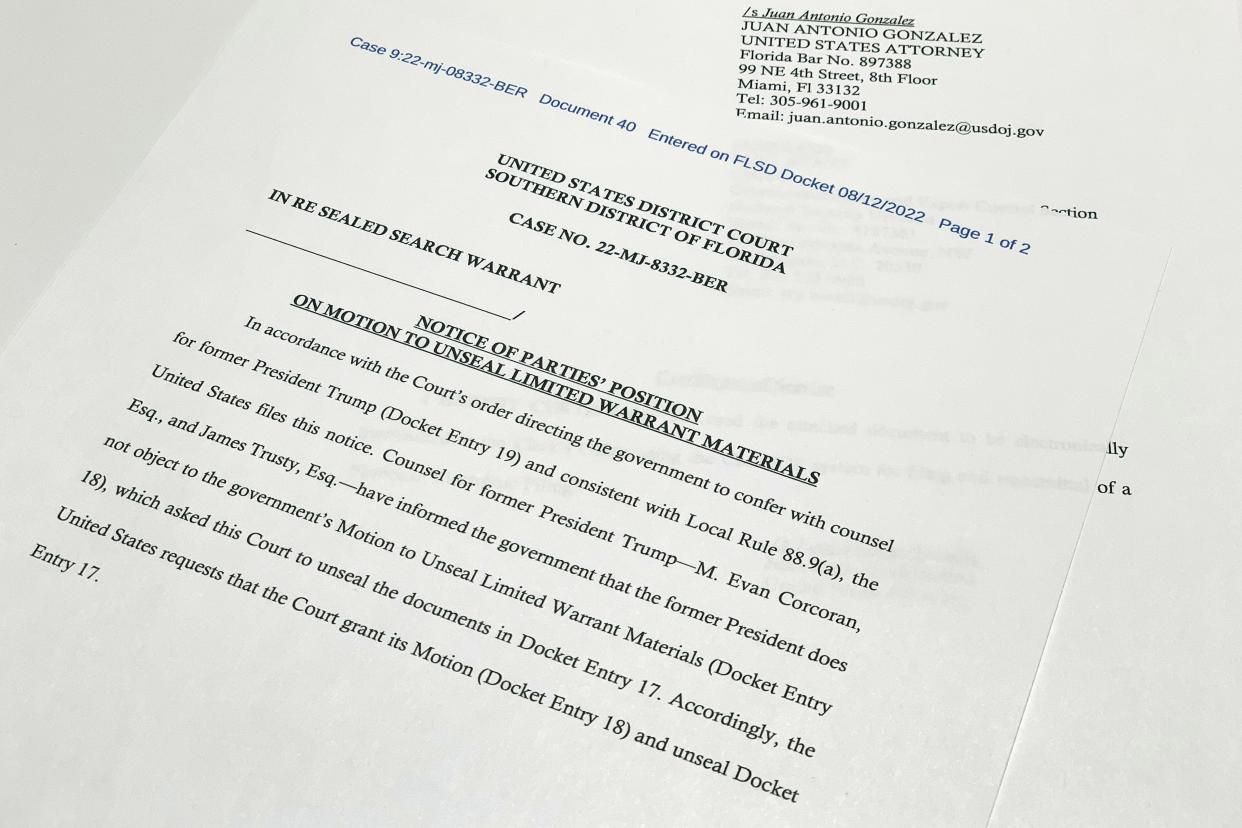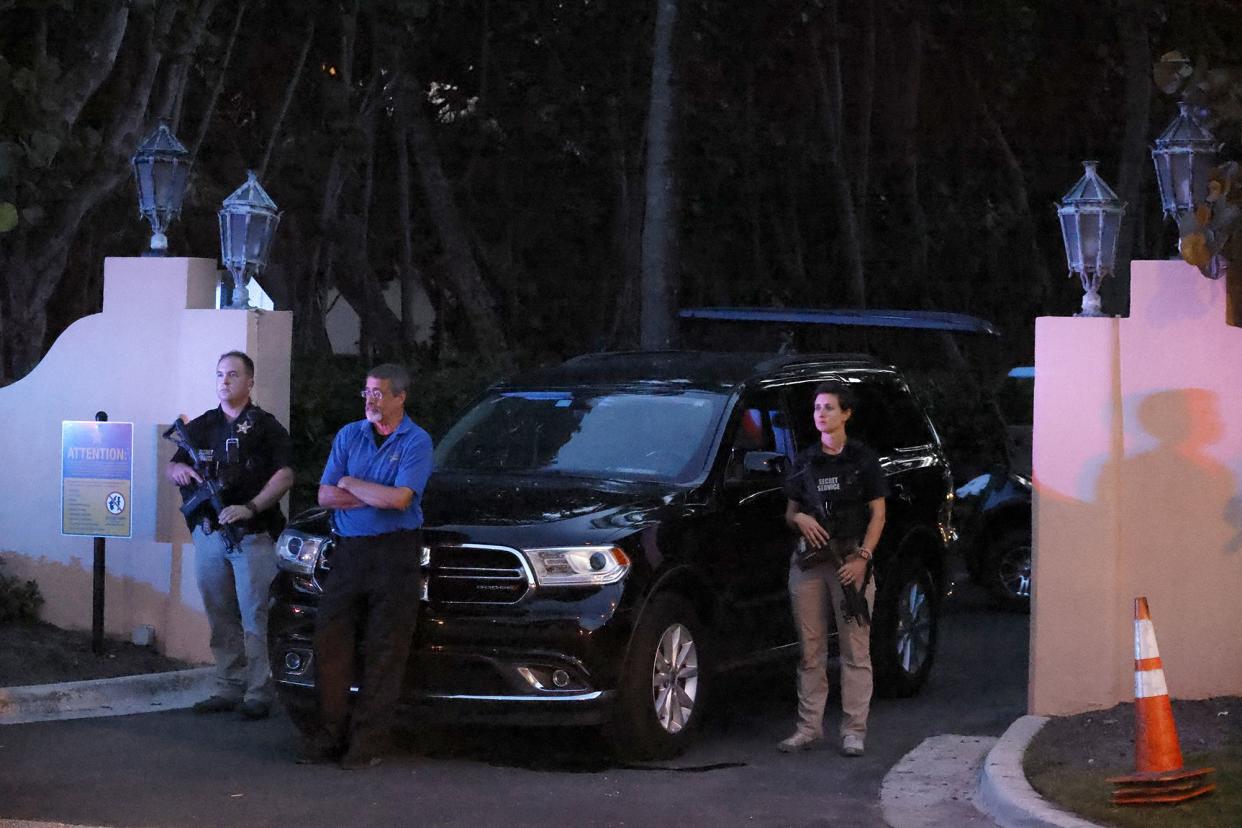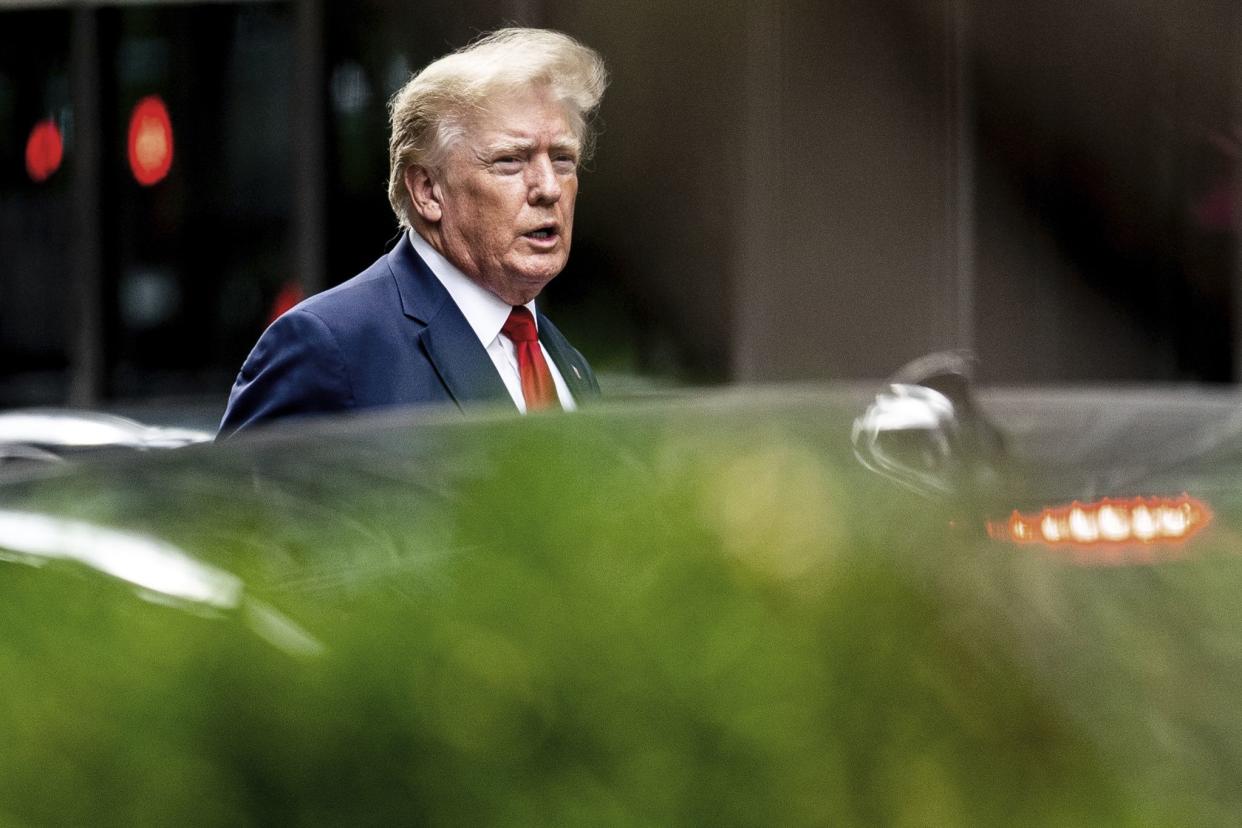Trump is under investigation for potential violations of the Espionage Act and other crimes, according to Mar-a-Lago search warrant
Former President Donald Trump is being investigated for possible violations of three federal laws including the Espionage Act, obstruction of justice, and the removal of government records, according to court papers released Friday after a federal judge unsealed the warrant that authorized the unprecedented search on Monday.
The FBI recovered documents that were labeled “top secret” from the former president’s Mar-a-Lago estate and a property receipt unsealed by the court shows FBI agents took 11 sets of classified records from the estate during a search on Monday.
Trump’s troubles: A look at investigations into the ex-president
Federal agents seized four sets of top secret documents, three sets of secret documents and three sets of confidential documents in the bombshell search of Trump’s opulent Palm Beach residence, the search warrant revealed.

The notice filed by the Justice Department to the U.S. District Court South District of Florida informing the judge that lawyers for former President Donald Trump did not object to the government's motion to unseal the search warrant for Trump's Mar-a-Lago estate, is photographed Friday, Aug. 12, 2022. (Jon Elswick/)
The Wall Street Journal first revealed the list of items seized by the feds, some of which are so secret that if revealed publicly, could cause “exceptionally grave” damage to U.S. interests and must be kept in secure government facilities.
The property receipt also shows federal agents collected other potential presidential records, including the order pardoning Trump ally Roger Stone, a “leatherbound box of documents,” and information about the “President of France.” A binder of photos, a handwritten note, “miscellaneous secret documents” and “miscellaneous confidential documents” were also seized in the search.
Stone said through a spokesman that he didn’t know how the clemency document wound up at Mar-a-Lago.

Armed Secret Service agents stand outside an entrance to former President Donald Trump's Mar-a-Lago estate, late Monday, Aug. 8, 2022, in Palm Beach, Fla. (Terry Renna/)
Trump’s attorney, Christina Bobb, who was present at Mar-a-Lago when the agents conducted the search, signed two property receipts — one that was two pages long and another that is a single page.
In a statement earlier Friday, Trump claimed that the documents seized by agents were “all declassified,” and argued that he would have turned them over if the Justice Department had asked.
The Washington Post reported Thursday that federal prosecutors told a federal magistrate they were searching for super secret documents related to nuclear weapons in the trove of documents Trump stashed at his resort in Palm Beach.
Trump has derided the search as a “hoax” but has not denied improperly keeping the documents he took after leaving office or given any explanation for why he refused to comply with an earlier subpoena demanding their return.
“They could have had it anytime they wanted—and that includes LONG ago,” Trump wrote on his social media site. “ALL THEY HAD TO DO WAS ASK.”

Former President Donald Trump departs Trump Tower, Wednesday, Aug. 10, 2022, in New York, on his way to the New York attorney general's office for a deposition in civil investigation. (Julia Nikhinson/)
While sitting presidents typically have the power to declassify information, the legal authority to change a document’s security clearance while in office does not apply to secrets dealing with nuclear weapons programs, covert operations and operatives, and some data shared with allies.
Trump kept possession of the documents despite multiple requests from agencies, including the National Archives, to turn over presidential records in accordance with federal law.
The Mar-a-Lago search warrant served Monday was part of an ongoing Justice Department investigation into the discovery of classified White House records recovered from Trump’s home earlier this year. The Archives had asked the department to investigate after saying 15 boxes of records it retrieved from the estate included classified records.
FBI sought nuclear documents in raid of Trump’s Florida home: report
U.S. Magistrate Judge Bruce Reinhart, the same judge who signed off on the search warrant, unsealed the warrant and property receipt Friday at the request of the Justice Department after Attorney General Merrick Garland declared there was “substantial public interest in this matter,” and Trump said he backed the warrant’s “immediate” release. The Justice Department told the judge Friday afternoon that Trump’s lawyers did not object to the proposal to make it public.
In messages posted on his Truth Social platform, Trump wrote, “Not only will I not oppose the release of documents ... I am going a step further by ENCOURAGING the immediate release of those documents.”
To obtain a search warrant, federal authorities must prove to a judge that probable cause exists to believe that a crime was committed. Garland said he personally approved the warrant, a decision he said the department did not take lightly given that standard practice where possible is to select less intrusive tactics than a search of one’s home.
The Justice Department under Garland has been leery of public statements about politically charged investigations, or of confirming to what extent it might be investigating Trump as part of a broader probe into the Jan. 6 riot at the U.S. Capitol and efforts to overturn the results of the 2020 election.
The department wants to avoid being seen as injecting itself into presidential politics, as happened in 2016 when then-FBI Director James Comey made an unusual public statement announcing that the FBI would not be recommending criminal charges against Clinton regarding her handling of email — and when he spoke up again just over a week before the election to notify Congress that the probe was being effectively reopened because of the discovery of new emails.
The attorney general also condemned an escalation in verbal attacks and threats against FBI and Justice Department personnel over the search. Some Republican allies of Trump have called for the FBI to be defunded. Large numbers of Trump supporters have called for the warrant to be released hoping it will show that Trump was unfairly targeted.
“I will not stand by silently when their integrity is unfairly attacked,” Garland said of federal law enforcement agents, calling them “dedicated, patriotic public servants.”
With News Wire Services
